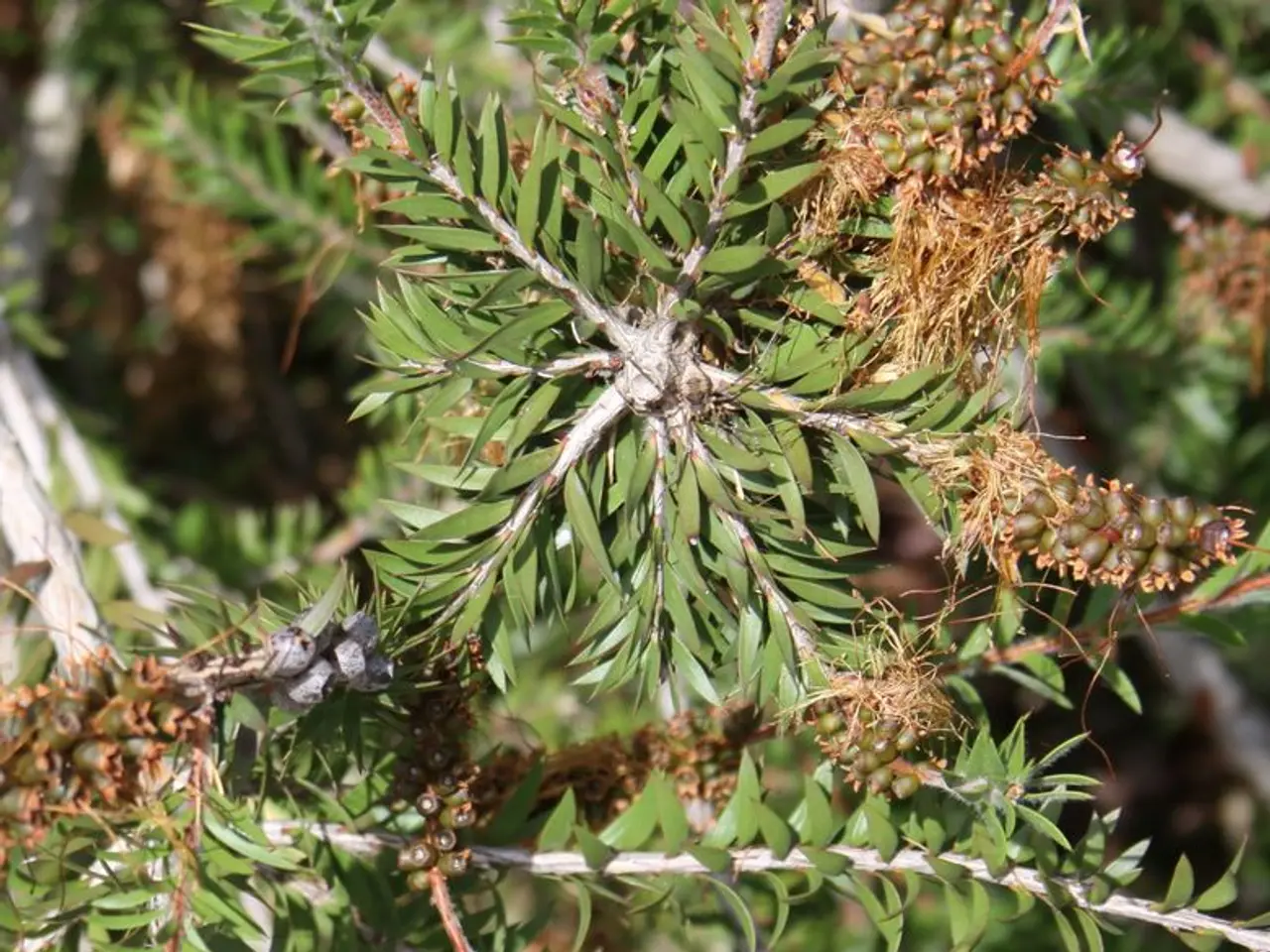Tree and Small Fruit Pollination Needs
In the heartland of America, Iowa, growing fruit trees can be both a joy and a challenge. Understanding the pollination needs of different fruit varieties is key to a bountiful harvest.
Self-pollinated plants, such as peaches, tart cherries, and most blueberries, are self-fruitful, meaning they can produce fruit without the help of another plant. However, in much of Iowa, peaches are not reliably cold hardy, and most peach cultivars, like 'Reliance', 'Contender', and 'Polly', are best grown in the southern one-third of the state. Tart cherries, on the other hand, are self-fruitful and thrive in Iowa's climate.
On the other hand, many fruit trees, including apples and European plums, are considered self-unfruitful and require cross-pollination for maximum production. This means that they need the transfer of pollen from a genetically different plant or variety to produce fruit. Japanese plums are not reliably cold-hardy in Iowa, but European and hybrid plums can be successfully grown. Asian pears perform best in the southern half of Iowa but are not as cold-hardy as European pears, and they are also self-unfruitful, producing best yields when two or more cultivars are planted together.
For self-unfruitful plants, the transfer of pollen by an insect pollinator is essential. Insect pollinators, like bees, transfer pollen on many tree and small fruits. To attract these pollinators, planting nectar-rich flowers such as zinnia, comfrey, ageratum, and coreopsis nearby can attract native pollinators including bees, butterflies, and other beneficial insects.
When selecting fruit tree varieties, it's important to choose compatible cultivars that bloom concurrently to ensure cross-pollination can occur. For example, many popular apple varieties like the Pink Lady® apple tree require a pollinator partner. Suitable pollination partners for Pink Lady® apples include varieties such as Honeycrisp because they bloom concurrently and are compatible pollinators.
In addition to planting pollinator partner tree varieties, encouraging native pollinator populations in your orchard or garden is crucial for better fruit set. Supporting native pollinators in Iowa through habitat and floral diversity boosts pollination success for your fruit trees.
In conclusion, selecting compatible fruit tree varieties that bloom simultaneously as pollination partners, planting nectar-rich companion flowers to attract and support native pollinators, and encouraging native pollinator populations in your orchard or garden are essential for maximizing fruit production for self-unfruitful fruit trees in Iowa. Additionally, 'Moongold' and 'Sungold' apricot cultivars are hardy throughout Iowa and self-unfruitful. Grapes, gooseberries, currants, raspberries, and strawberries are all self-fruitful, making them easier to grow in Iowa.
- For a bountiful harvest of self-unfruitful fruits like apples and European plums in Iowa, it's crucial to choose pollination partners that bloom concurrently, such as Honeycrisp for Pink Lady® apples.
- To attract the necessary insect pollinators like bees, planting nectar-rich flowers such as zinnia, comfrey, ageratum, and coreopsis near fruit trees can boost the success of pollination.
- Encouraging native pollinator populations in Iowa through habitat and floral diversity is vital for a better fruit set in your orchard or garden, enhancing Pollination success for self-unfruitful fruit trees.
- While many fruit trees need cross-pollination, self-fruitful plants like tart cherries thrive in Iowa's climate, and 'Moongold' and 'Sungold' apricot cultivars are hardy throughout Iowa and self-unfruitful, making them easier to grow.




